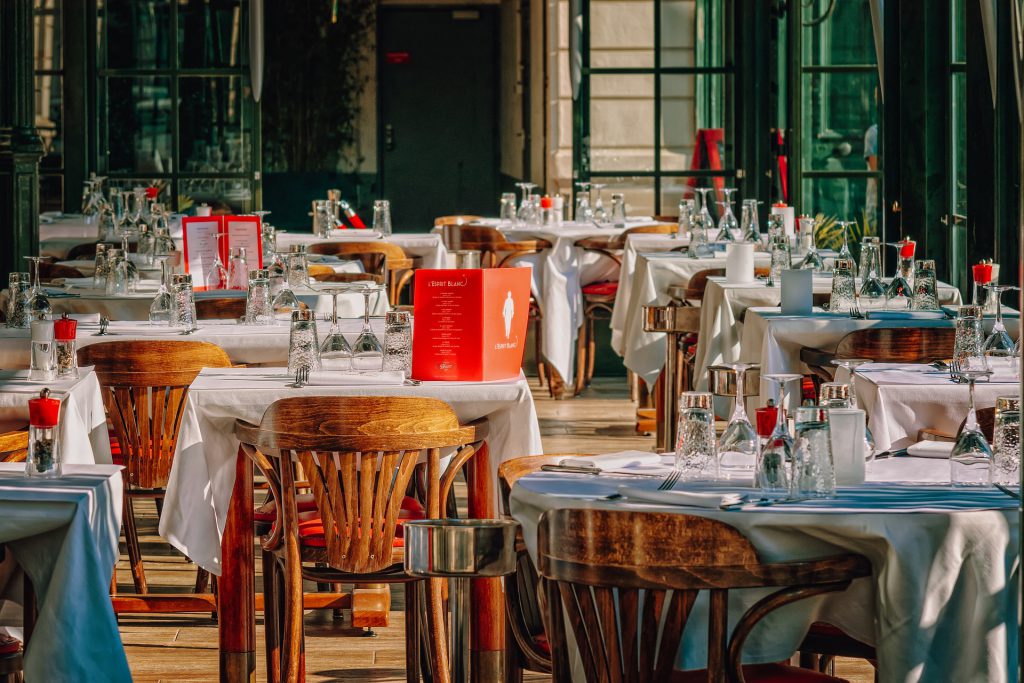If you’ve ever worked on an auction committee, you know how difficult it is to choose a date, venue and theme for your gala.
Not only must you reconcile differing opinions from your committee members, but you must also choose a date, venue, and theme that work together in harmony.
Below are some considerations for deciding on these crucial aspects:
Select the Date for the Event

One Size Doesn’t Fit All
There is no ideal day of the week, month of the year, or season in which to hold a successful fundraising event.
Successful events are held every day of the week, and at all times of the day, including breakfast events, lunch events, and dinner events.
In general, it makes little difference in terms of auction yield whether you conduct an auction in the morning, at mid-day or in the evening, and it also makes no difference what day of the week you hold your event.
Sunday events can be as successful as Saturday night events, and a Wednesday luncheon can produce as much revenue as a Friday night gala.
When Can Your Supporters Attend?
It really comes down to when you can fill your room with supporters. For some organizations, it is easier to draw their supporters at a mid-week luncheon than it is to get the same supporters to attend a Saturday night gala.
Questions to Ask Your Committee
Your committee should begin the search for a date by answering the following questions:
- What time of year are we most likely to be able to get people to attend?
- What conflicting events or holidays must we avoid?
- Will our preferred venue be available on that date or potential dates?
- Will we have enough planning time to be successful if we select that date?
- Will that date or those dates support our theme?
Don’t Ignore Sunday Through Thursday
It’s not necessary or accurate to assume your event will be more successful on a Saturday night than on any other day of the week.
Remember, on Saturday other conflicting events may draw from your potential guest list. A Sunday afternoon event may be just as successful, as long as you feel you can draw your supporters on that date.
Should we keep the event on the same week each year?
There is also a case to be made for trying to keep your event on the same weekend of each year, so it can be predictable for your constituents. If you select the first weekend in February, for example, then always have your even on the first weekend in February. Below are some considerations:
Managing Conflicts
This same weekend may have built-in conflicts with other events that also select that weekend each year, so if you happen to share a constituency with other events on that weekend, you will also be vying for the same people.
Moving it around on the different weekends solves that issue, but creates the potential for new conflicts each year, so there really isn’t one “best” method.
Avoiding Holidays
Some holidays don’t fall on fixed dates, but “float” around during the calendar. One such example is Easter; if you plan to have your event on the same weekend each April, realize that in some years this may fall on Easter weekend, which could possible affect your turnout, depending on your audience base.
Audience Turnover
On average, audiences “turn over” about 20% each year through natural attrition, This is due to people moving, children graduating form schools, loss of interest in a cause, schedule conflicts, and other reasons.
As a result, you will have a totally new audience every five years. Changing a predictable weekend date or a location every few years will really not harm your planning because you are dealing with a new audience makeup every few years anyway.
Identify Potential Themes

Themes are good because they help create a party atmosphere, and they suggest decoration ideas that will frame the venue properly as a backdrop for your event.
When selecting a theme, bear in mind that the theme you select must carry through on all printed material, advertising, publicity, decorations, and at the location for the event.
For example, if you select a sports-related theme such as “Show Your Colors,” where you encourage guests to come dressed in their favorite sports team or college team colors, it would make sense to find a sports stadium as a possible venue. An “Orient Express” theme would be great for an event held at a train station, and a Western theme, such as “Denim, Dudes, and Diamonds,” would fit wonderfully at a horse stable or riding arena.
However, many themes will work at generic locations, such as school gymnasiums, community centers, hotel ballrooms, and convention halls.
For a list of theme ideas, check out our post: 73 Theme Ideas for Your Gala
Select a Preferred Venue

One of the most important decisions for your auction is where to hold your event. Accessibility, facilities, and usable space are all very important factors that you need to keep in mind while looking for the ideal venue.
In addition, your location should enhance your theme, if possible, as discussed in Identifying Potential Themes.
Creativity counts
Early in the planning process, your agenda should include time for brainstorming locations for your event. Don’t necessarily think that you must limit your options to hotel ballrooms or convention center meeting rooms.
You know your home town and its meeting venues better than anyone else, so be creative. Your location will need to be a place that is easy to find and centrally located, someplace that will be an attractive venue for people to want to spend their time (not to mention their money).
Dare to Dream
The brainstorming session means exactly that. Don’t immediately discount any idea, no matter how far-fetched it may seem. Some of the best, and most unique, auctions have taken place in the wildest locations.
If the organization has a Western theme, for example, you might consider finding a barn that has been converted into a meeting hall. If a cruise ship is the theme of the evening, you might think about finding a large yacht that can host a dinner cruise.
Take some time and really think about where you want to have the event. You might come up with an idea that no one has thought of before. If a lot of guests are coming in from out of town, consider a location that is unique to your particular town or area might be fun.
For example, an auction in California might take place in a winery, or an auction in Washington D.C. might be held in a famous historical landmark or building.
Here’s Some Ideas
Here are some unique locations to start your brainstorming:
- Hotel ballrooms and convention halls
- Sports stadiums and athletic fields
- Wineries
- Shopping malls after hours
- Private country clubs
- Tennis courts (indoor and outdoor)
- Train stations
- Corporate building lobbies
- University or college clubs, community centers, and church halls
- Restaurants
- Zoos, botanical gardens, and public aquariums
- Amusement parks
- State fairgrounds
- Theaters and music halls
- Cruise ships or other large boats
- Horse arena/stables/barns
- Private mansions or exclusive homes
- Museum display halls
- Aircraft hangar or aircraft carrier deck
- Circus tents
Consider costs in total
Keep in mind that your location takes a backstage to the event itself, but scenery is an important contributing factor. It may be that the theme you select requires that you hold your event in a location that is going to be more costly. There is nothing wrong with that, but consider all costs of the event in total.
Free Isn’t Always Free
Schools will be tempted to try to hold their event on campus as a way to reduce costs, and often that will work. At some point, however, depending on your goal and who you want to attend, you may need to move offsite to attract guests from outside the immediate school family.
In addition, many schools have policies restricting the ability to serve alcohol on campus, so if you are planning to serve wine, beer, or mixed drinks as part of your event you may have no choice but to go to a non-campus site.
Remember, don’t over commit your organization’s funds when searching for a venue, but don’t choose a location simply based on the idea that it is inexpensive or free. If your sponsors and benefactors see that you have spent some money so that they can have an enjoyable evening, they will be more generous in their giving.
An example
Your committee is committed to only finding free locations, so they decide to accept the offer to use a large aircraft hangar owned by a friend of the organization. While the committee is getting the location for free, they must now find a caterer to handle the food service away from their normal place of business, typically at an increased cost. The serving staff must be recruited to work at an offsite location as well. The Decorations Committee discovers that they now need to rent all the dinner tables, as well as the Silent and Live Auction display tables. Then, of course they need to rent the linens to cover the tables—and they also need to rent the serving dishes, plates, silverware, and more.
The hangar does not have adjustable lighting (it’s either all on or off ), and the Decorations Committee will not accept a ‘‘brightly lit’’ room so they need to rent auxiliary lighting to set the mood. An aircraft hangar does not have great acoustics, so the Audio/Visual Committee learns that the cost to rent a sound system is higher than what they had budgeted due to the need for additional equipment to make the sound correct for an auction, and there are no built-in screens for a PowerPoint presentation of auction items or video during the event, so those rental costs go up as well.
Are there adequate bathroom facilities, or will the committee need to rent portable toilets? Will there be any additional costs for post-event cleaning crews to restore the location back to its original state? There may also be a cost for portable heaters or cooling systems, depending on the time of year. In addition, the owner of the hangar may require an insurance policy or bond to cover injuries to guests, or liability for damage to the hangar or its contents, which could also add to the total cost of use. Finally, costs to arrange for parking or valet at the hangar may be higher than if the event was held elsewhere.
By the time all of the amenities, rentals, and other costs are added in, your ‘‘free’’ location may not be such a bargain after all.
Having the event at a hotel might be a more cost-effective decision because there are no added costs for tables, linens, serving utensils, lighting, insurance, or other items that are typically part of the package. Many hotel caterers will not charge for the ballroom, as long as you meet certain minimums of food and beverages to be served.
When selecting a venue for your event, you also need to consider what kind of items need to be transported. If there is a lot of really heavy furniture that needs to be delivered to, and carried into, the event, it might be best to choose a location where the least amount of lifting is required.
Ask questions
Above all, ask questions about the building that you are renting. Some locations (meeting halls, convention centers, etc.) have an exclusive contract with only one catering service.
Inquire about conditions like end-of-the-event clean-up, fees for staying after midnight, janitor fees, table or linen fees, and how much each would add to the cost of the rental.
Ensure decorating restrictions will not get in the way of your plans, and be prepared to provide all materials from tape to extension cords. Also, follow safety rules like taping electrical wire down over door thresholds so the guests and wait staff are not in jeopardy. And make sure, before you sign on the dotted line, that you are certain of your choices.
See our blog post: Choosing a Gala Venue: Ask These Questions Besides “What’s It Cost?”
Finally, set some goals and a budget for your venue and stick to them. If you have a vision of what the space should look like, don’t compromise simply because you found a space that was free or was the first one available; that’s the wrong reason to choose a site for your classy event.
This post is adapted from The Big Book of Benefit Auctions by Jay R. Fiske and Corinne A Fiske.





Vario Productions
Holding an event in a train station sounds amazing and unique, I wonder what type of event we can hold on such venues